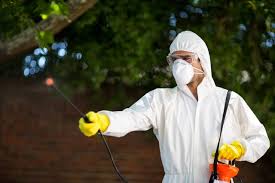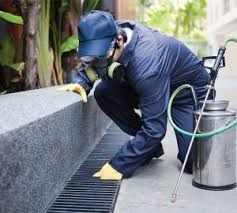How to Become an Exterminator
Exterminators, also known as pest control workers, visit homes, businesses and other buildings to set traps or spray insects. The work of an exterminator can be physically taxing, and it takes considerable training to become one. A high school diploma or GED is the minimum educational requirement, followed by on-the-job training that includes formal class instruction as well as supervised work. Pest control workers must be licensed. In some states, you might also need to pass a written examination or meet other requirements.
General Requirements
All pesticide applicators in the United States come under the jurisdiction of the US Environmental Protection Agency and the Federal Insecticide, Fungicide, and Rodenticide Act (FIFRA). But each state has a “lead agency” (usually the state’s department of Agriculture or Environmental Protection) that actually implements the FIFRA requirements, and they do so quite differently. So what appears here is very general in nature. For more accurate information, contact your state’s pesticide lead agency or Cooperative Extension department.
In most states, candidates to become certified pesticide applicators must be at least 18 years of age and have a certain amount of experience working under a certified person and/or have completed an approved training course.
Applicants to become certified must also “be of good character.” Different states interpret this differently. In almost all cases, convictions for certain crimes involving the environment, pollution, or terrorism will bar an applicant from working with pesticides. Other convictions may or may not prevent certification, depending on the state and the nature and circumstances of and time since the conviction.

Specialized Training Required
Pesticide applicators must adhere to rules established by federal agencies such as the Environmental Protection Agency. In addition, each state has its own regulations and requirements. The U.S. Bureau of Labor Statistics notes that most pest control workers must have a high school diploma or GED. Although on-the-job training is the norm, some states require formal technical instruction. States are increasingly likely to require a candidate to complete a state-approved pest control management program, according to Scarafaggio’s Pest Control Site. Online or correspondence courses may be acceptable in some states. You can usually find training courses at your state’s Cooperative Extension department or from community colleges, employers or pesticide companies.
Supervised Training and Examinations
Supervised training is an important part of becoming an exterminator. Most companies offer training programs, and the BLS notes that the average training period is about three months. During your training you will work under the supervision of an experienced exterminator. Before you can work independently, you will need to become licensed, which typically involves passing two written examinations. The first exam is the core section, which covers basic pesticide application concepts. The second exam is specific to the category you will practice, such as rodent or insect control. Some states might also require an oral examination or a practical demonstration of your knowledge. You will also be required to carry liability insurance or work for a company that does.

How to Get Certified to Do Pest Control
- Obtain your high school diploma or equivalent. According to the National Pest Management Association, most pest control companies do not require a college degree.
- Take pest control courses offered through your state’s department of agriculture or similar governing body. The courses will cover the basics of pesticide safety, such as proper application techniques, preventing exposure to pesticides and proper cleansing methods in instances of exposure.
- Take the U.S. Environmental Protection Agency’s National Pesticide Operator Core Exam. In addition to other tests your state may require for certification, the EPA exam serves as certification to be a private or commercial pesticide applicator. The 90-question exam ensures that applicants are tested on relevant material and establishes uniform standards across states. Each state varies in its recertification or renewal requirements
- Undergo training from an employer after receiving certification. Most states require pest control workers to have on-the-job training, which usually takes about three months. This training can be a mix of field experience and classroom instruction.

What is dangerous about this job?
- Chemicals (pesticides) used by Pest Exterminators are usually toxic to man. They may cause acute or
- chronic poisoning, burns, skin, eyes, throat and other disorders, and be harmful in other ways.
- Some pesticides are flammable, and their careless handling and storage may cause fires.
- Pest Exterminators often work in uncomfortable postures and handle heavy loads, which may cause traumas
- and, in the course of time, back, hands and arms pains.
Job Satisfaction
Average Americans work well into their 60s, so workers might as well have a job that’s enjoyable and a career that’s fulfilling. A job with a low stress level, good work-life balance and solid prospects to improve, get promoted and earn a higher salary would make many employees happy. This job is not for people who can’t balance their work schedules, make quick decisions or crawl into small spaces. If you specialize in exterminating termites, it is especially important to be comfortable working in small spaces. But even if you are ridding a home of rodents, you may have to work inside an attic, Wren says. Termites are a bigger issue in the southern U.S., whereas rodents and bed bugs are the worst offenders in the northern part of the country.
To better balance work and family life, lets his employees work on a rotation and come in later if they are scheduled to work later, since many appointments occur after people get home from work and on the weekends. Exterminators, no matter what company they work for, have to be prepared to work on weekends and in the evenings when the bulk of the work is scheduled.